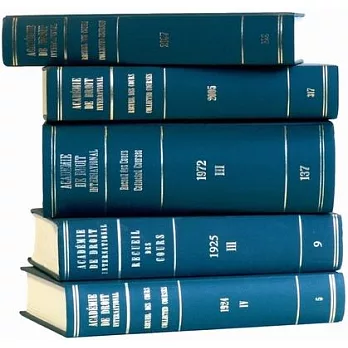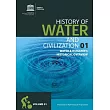Co-publication with: The Hague Academy of International Law.
Erik Paul Trygve Jayme, born 8 June 1934, in Montreal (Canada), German nationality, British subject.
University of Frankfurt am Main (1954-1955, Law), University of Munich (1955-1958, Law and History of Art), University of Pavia, Italy (1958-1959, Italian State fellowship); Apprenticeship in Law (1959-1963); University of California, Berkeley (Fulbright fellowship,1965-1966).
First State Examination in Law (Munich, Bavaria) (1958); Doctor iur., University of Munich (1960); Second State Examination in Law (Hesse) (1963); LL.M. (Berkeley) (1966); Habilitation, University of Mainz; venia legendi: Civil Law, Private International Law, International Civil Procedure and Comparative Law (1969).
Privatdozent, University of Mainz (1969); Wissenschaftlicher Rat und Professor, University of Münster (1973-1974); Professor ordinarius, University of Munich, Co-director of the Institute of International Law of the University of Munich (1974-1983); Professor ordinarius, University of Heidelberg, Director of the Institute of Foreign and International Private and Commercial Law (1983-2002); Professor emeritus, University of Heidelberg, Germany (since 2002).
Institut de droit international (member since 1981, President 1997-1999; rapporteur party autonomy, Basel, 1991, rapporteur for "Substitution in Conflict of Laws", Santiago de Chile, 2007, rapporteur for "Internet and Invasion of Privacy", since 2012); Académicien titulaire, Académie internationale de droit comparé (since 1987); member, Heidelberger Akademie der Wissenschaften (since 1989); foreign member, Austrian Academy of Sciences (Vienna, since 2001);
foreign member, Accademia Nazionale dei Lincei (Italian National Academy, Rome, since 2002); foreign member, Istituto Lombardo (Milan, since 2000); foreign member, Istituto Veneto (Venice, since 2004); member: Koninklijke Nederlandse Akademie van Wetenschappen (since 2005), Groupe européen de droit international privé (since 1991), Deutsche Gesellschaft für Völkerrecht, Deutsch-Lusitanische Juristenvereinigung (President, 1991-2005), Deutsch-italienische Juristenvereinigung (since 1966), Gesellschaft für Rechtsvergleichung.
UNIDROIT, Rome, Judge (giudice supplente) at the Administrative Tribunal (since 2009); Member of the Comité Venezolano de Arbitraje (Caracas, since 2005); Curatorium of the Hague Academy of International Law (election 1998, Vice-President, since 2004).
Landesforschungspreis Baden-Württemberg (1989); Doctor honoris causa, University of Ferrara, Italy (1991); Doctor and Professor honoris causa, University of Budapest, Hungary (2000); Doctor honoris causa, Universidade Federal do Rio Grande do Sul, Porto Alegre, Brazil (2003); Doctor honoris causa, University of Montpellier, France (2003); ordem do Infante Dom Henrique no grau de grande oficial, Portugal (2005); Doctor honoris causa, University of Coimbra, Portugal(2007); ordem du Cruzeiro do Sul, Brazil (2008).
Ted M. de Boer, born on 11 May 1943 in Uithoorn, Netherlands.
LL.M. (Utrecht University) (1969); M.C.J. (New York University) (1971); J.S.D.
(cum laude, University of Amsterdam) (1987).
Joined the University of Amsterdam law faculty (1972). Appointed director of the Center of Foreign Law and Private International Law, University of Amsterdam, and tenured professor of private international law and comparative law (1987).
Co-founder and director (1994-1996) of the International Law Institute of the University of Amsterdam (now: Amsterdam Center for International Law), and chairman of the Department of International Law, Faculty of Law, University of Amsterdam (1997-2001). A visiting professor at Columbia University School of Law (2001). Gained judicial experience as a deputy judge at the District Court of Alkmaar, primarily adjudicating conflicts cases (1985-2013).
One of the editors of the Netherlands International Law Review (since 1991), and one of the commentators responsible for annotations on the Dutch Supreme Court’s decisions on private international law published in Nederlandse Jurisprudentie.
Appointed member of the Royal Academy of Sciences of the Netherlands (1991).
Member of the Netherlands Standing Committee on Private International Law (since 2003). The University of Amsterdam granted him the title of "distinguished professor", in acknowledgment of his academic achievement and his commitment to the cause of international legal studies (2009).
Manlio Frigo, né le 13 novembre 1952 à Valdagno (Italie). Professeur ordinaire de droit international à l’Université de Milan.
Membre du Doctorat en droit international de l’économie, Université L. Bocconi, Milan, responsable du secteur droit de l’Union européenne.
Membre émérite du Comité pour les droits humains de la Società Italiana per l’Organizzazione Internazionale, Rome, et membre du Conseil national de la Société.
Membre du Comité sur le droit du patrimoine culturel (Cultural Heritage Law) de l’International Law Association, Londres, de la Società Italiana di diritto internazionale, de l’Association Henri Capitant, du Comité scientifique de la revue Consumatori, Diritti e Mercato, du Comité de rédaction de la Rivista di Diritto Societario.
Avocat au barreau de Milan.
Membre du Groupe international d’experts créé par l’UNIDROIT afin de rédiger l’avant-projet de Convention sur le retour et la restitution des biens culturels volés ou illicitement exportés.
Délégué de l’International Law Association à la Conférence diplomatique sur le retour et la restitution des biens culturels volés ou illicitement exportés, Rome 7-24 juin 1995.
Responsable pour l’Italie du Groupement de recherche international (GDRI), Droit du patrimoine culturel et droit de l’art.
Membre du Groupe d’experts européens chargé par la Commission de l’UE d’effectuer la recherché dirigée par l’Université de Heidelberg concernant la mise en oeuvre du règlement 44/2001 (Bruxelles I), 2007.
Membre du Comité d’étude établi par l’UNESCO concernant la préparation de dispositions modèles définissant la propriété de l’Etat sur les biens culturels, 2010.
Membre du Comité d’étude créée par l’UNESCO et l’UNIDROIT et chargé de rédiger les dispositions modèles définissant la propriété de l’Etat sur les biens culturels non découverts, 2010-2011.
Membre du Steering Committee du Groupe européen d’experts chargé par la Commission de l’UE de rédiger le Study on preventing and fighting illicit trafficking in cultural goods in the European Union, 2010-2011 (Final Report, octobre 2011). Membre du Groupe international d’experts chargé par le Parlement européen de rendre un avis final concernant la proposition de refonte de la directive 93/7 sur la restitution de biens culturels ayant quitté illicitement le territoire d’un Etat membre (2013). Professeur invité à l’Université de Paris XI (Paris-Sud), 2007, 2008, 2010, professeur invité à l’Université fédérale de S. Catarina, Florianopolis (Brésil), 2010-2014, professeur invité à l’Université de Paris II (Panthéon-Assas), 2009, 2011-2014.
Conférences en matière de droit de l’art, protection et circulation des biens culturels à Genève (2000, 2010, 2011), Madrid (2003), Dijon (2005), Paris (2006- 2014), Wuhan (Chine) (2008), Tunis (2008), La Nouvelle-Orléans (Journées Louisianaises de l’Association Henri Capitant, 2008), Figueres, (Espagne, 2008), Londres (2008), Poitiers (2009), Berlin (2010), Séoul (UNESCO International Forum on the Return of Cultural Property, 2011, et 2d International Conference of Experts on the Return of Cultural Property, 2012), Munich (2011 et 2012), Gaziantep (Turquie) pour l’UNESCO Workshop on the Fight against illicit traffic of cultural property in south-east Europe (2012), Rio de Janeiro (2012), Vienne (2012), Budapest (2013), Athènes et Olympia (Grèce) (3d International Conference on the Return of Cultural Property, 2013).



 天天爆殺
天天爆殺  今日66折
今日66折 
























 博客來
博客來 博客來
博客來 博客來
博客來 博客來
博客來 博客來
博客來